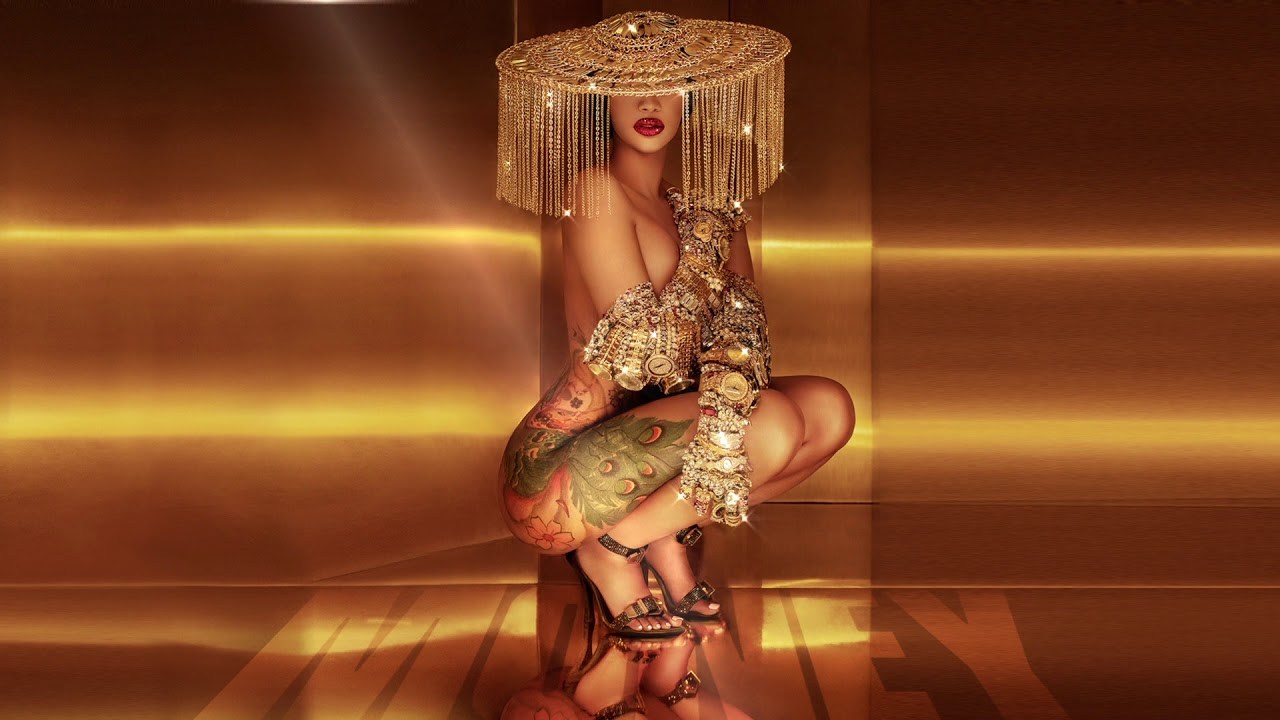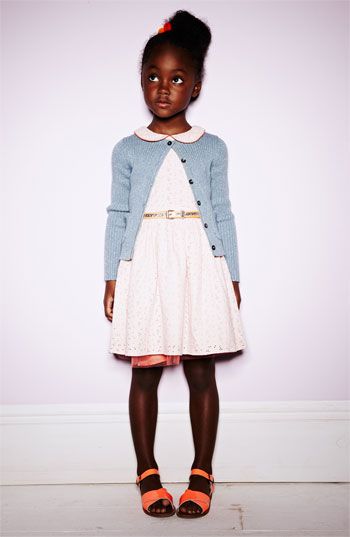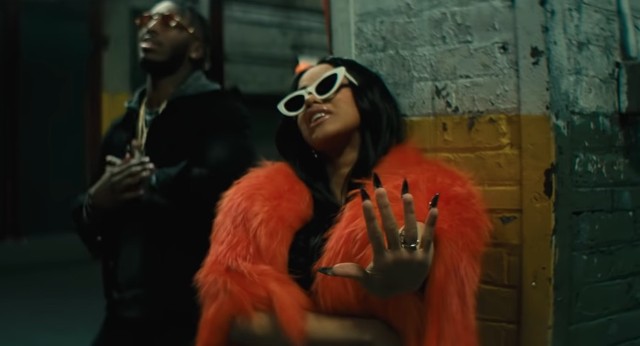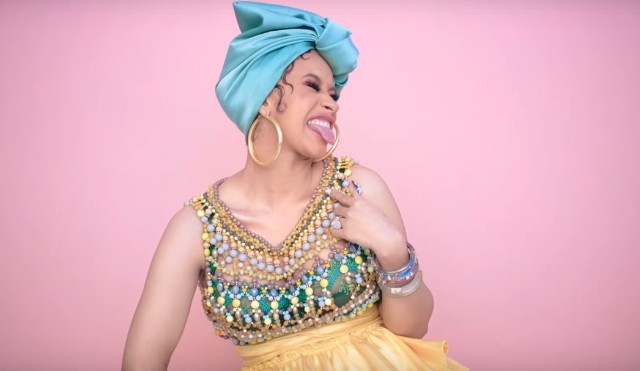A Black Girl's Ode to Cardi B

It's 2018. The age of social media has shattered multiple ceilings. Instagram, Facebook, Twitter, and Snapchat have introduced the ability to observe and experience the everyday lives of celebrities and people across the globe from the comfort of our own homes. It has also given rise to new celebrities and influencers that have never graced the TV or movie screens. It has introduced public figures that typically, in history, would have never been celebrated. This includes the controversial celebrity, Cardi B.
Public figures are not the only ones who have benefited from this unprecedented form of concentrated access. Brands like Fashion Nova, which are primarily advertised on meme pages, Instagram ads, and paid partnerships are now multimillion dollar companies and are partnering with Cardi B this Friday for a specialized Black Friday restock and collection on November 23.
Peacock Plume sat down with the Vice President of Nickelodeon's Public Affairs, a college student, and a black reporter and mom to get their take on how the controversial woman of color is being portrayed by the media and what it says about society.
For many American black girls over the years, myself included, growing up and finding an identity in society can be a difficult feat. There is an underwhelming representation of us on TV or movie screens, and even fewer prominent figures in the media. Over the past few decades, black mothers have assured their daughters of their beauty in the comfort of their own homes because those little girls seldom saw the 'pretty girl' in the media look like them.

Image Credit: Pinterest/Popsugar
The emergence of representation and celebration of different skin tones in the media only began in the '70s, with films like Mohagany, starring Diana Ross in 1975. In the '80s, MTV appeared, featuring music videos from Michael Jackson. Then in the '90s, there were pop and movie icons like Janet Jackson, Halle Berry, Lil Kim, Lauryn Hill and Lisa Bonet. Now there are thousands of TV shows, including the crown jewel of my generation, the reality genre. These shows feature nearly every minority: black, Hispanic, housewife, little person, middle easterner, Amish, rich kids, singles looking for love, and more. And from this genre, has emerged the Trinidadian-Dominican Hip-Hop star, Cardi B.
Women of color have been making strides in representation over the years, undoubtedly thanks to social media. Cardi B, the female rapper who is a topic of hot discussion in the media all while shattering records, also owes her success to these social platforms. In 2013, Cardi B had developed a significant Instagram personality by catering to her audience at the time, consisting of "little drug dealers and scammers," as reported by Fader. By 2015, she had caught the eye of reality producers on Love and Hip Hop and after a brief two-year stint on the show, she called it quits.

Image Credit: Stereogum/Pardison Fontaine
But what sets her aside from many of the women of color that preceded her is the social media factor. Although she was no longer on TV, fans could still keep up with her whereabouts and updates via Instagram. Nickelodeon Public Affairs Vice President Marva Smalls, whose sister company MTV broadcasted the VMAs which featured Cardi B, weighed in on the power of social media, saying, "I think it demonstrates the power and possibility present in the tech age today. Technology breaks down the walls and provides "in your face" access intentionally and unintentionally. I will sometimes see things pop up unaided by me."
Although we have the metric data supporting Cardi B's popularity, streaming and likes, there is also a question to be asked, 'how is one of the top female artists a provocative woman of color, when we are currently experiencing such a polarization in the US?' What does Cardi B represent in such a confusing time? Is the public really laughing with her or at her? Many young women sing her praise because of her imperfections and opposition to fit the cookie-cutter frame, while their mothers are more skeptical of society's sudden acceptance of a woman of color that is so controversial.

Image Credit: Stereogum/Cardi B
19-year-old, Middlebury College student, Megan Job, from Brooklyn, the nieghboring borough to the Bronx, Cardi B's home, shared her perspective, saying, "She's so real. She's real to me. My whole family is from the Bronx. Cardi B emerged at a time when I was transitioning into a better life as well. And as a black girl leaving a life of struggle, it was nice to see someone who faced similar struggles to me succeed."
It is no doubt that it is Cardi B's realness that earned her some of her credentials, as well as her humor, record-breaking hits, and stream-ability, but her success is not the only thing that is depicted in the media. Reports and confessions also surfaced about her gang affiliations, party fights and more. This conflict is by no means new to the rap game, but society's acceptance of it is.
This is what causes many older women of color to question the public's fascination with her success despite her explicit candor. Deborah Roberts, my mom, and a correspondent for ABC News, has been a woman of color in the public eye for a handful of decades, but likewise, has had much firsthand experience in the way that the media portrays ethnic women. She said, "Women of color have always faced stricter scrutiny under the spotlight. We had to be better and be more meticulous to be accepted. 'Twice as good to get half as far,' my mom always said. So if you had rough past it almost doomed your stardom."

Image Credit: YouTube/ Cardi B - I Like It (Clean) ft. Bad Bunny & J Balvin
While the female rap star may not be the poster child for doing things in the traditional way, provocative figures in society are no new occurrence. Marva Smalls says "I don't think she is necessarily starting a "new" conversation; I believe that conversations just evolve over time. "New" conversations happen and artists come on the scene and choose to engage with the issues "du jour.""
But regardless of your opinion on Cardi B, there are positives and negatives of her presence that cannot be ignored. She is breaking records. "Music, as we know it, is a male-dominated industry, but because of the gradual efforts and impact each of these women has made in the industry the doors are a little more open to new female artists," said Smalls. While Cardi B may be flawed as a person, it is not our job to politicize her.
Deborah Roberts says, "I personally think we should examine our intentions. Why do we admire or like this person? What does it say about you? Is it glorifying something that's positive or negative?"
Cardi B is not at fault for the public's gross fascination with her, but if she inspires young women in the process of the media's dissection, so be it. There is one more little girl of color that can see a successful woman in the media that looks like her, and may have similarly come from a rough neighborhood. Just like her.

Image Credit: Proandhop





